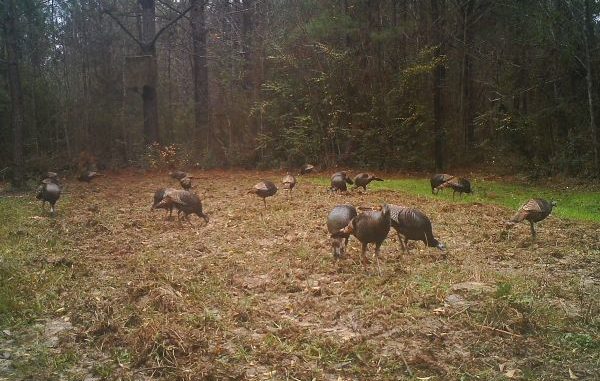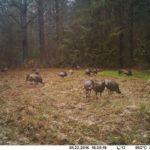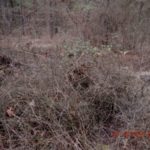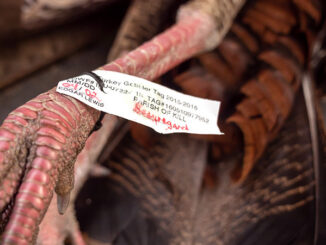
The 2016 turkey season is the next to the last season of the 2015-16 hunting season (the spring squirrel season is the last).
The reason for this is that hunting seasons follow the hunting and fishing license year, which ends in June, with the new license year beginning July 1.
No doubt many of you reading this are glad to see the deer season come to an end. The weather during the bulk of the season was the pits — unseasonably warm and very wet.
The real deer-hunting weather did not arrive until Christmas was over, and much of January was ideal for deer hunters. Unfortunately, the rut was over in Area 2 and the other early breeding areas and unusual winter flooding of the Mississippi River impacted hunters in Areas 1, 6 and 9.
Area 4 hunters were able to catch the second rut with the January cold spell, and some nice bucks were killed in the Florida Parishes.
For me it was not a really great season, but it was a good season. It was looking like it was going to be my lowest deer kill in over 40 years, but the cold weather in January provided me with a few good hunts, and I was blessed to be able to put sausage in the freezer and give deer to several good friends.
It only takes one or two exceptional hunts to make for a great season, and no doubt there were hunters who had a great deer season. The Stafford clan in Franklinton hunted hard, hunted when the weather conditions were right, hunted when the water levels were right, and hunted when the rut, weather and water levels were right. And they had a great season; hunting when the conditions are right for deer movement always spells success.
Deer measuring will begin with the Sportsman Show in March, and this will give deer biologists an indication of how good or how poor the 2015 deer season was.
I expect it will be another year with a low deer kill, but this is by no means an indication of actual deer numbers.
Weather conditions and the abundant mast crop worked together to ensure the harvest would be low. I wrote about “carry-over” last month and will be talking more about it in upcoming issues.
With the cold weather in January, browsing on the native forage has been high, especially in the piney woods where browse is limited. If the browsing is high now, particularly with the abundant mast crop, the spring and summer browse might get hammered.
While the mast crop will certainly help maintain deer during the late winter and early spring, carry-over deer, along with feral hogs, could eat it all and then it will be up to the native forage to keep the herds growing and healthy.
Hunters need to be keeping an eye out for over browsing on the landscape.
Turkey season
The 2016 turkey season opens the last weekend in March.
Turkeys respond well to habitat management work, so if you enjoy turkey hunting, time should be spent on the landscape making it turkey friendly.
According to Jimmy Stafford, retired LDWF turkey biologist, clover is one of the top foods in the spring for turkeys. I’ve watched turkeys feeding in a green patch that was planted with clover and wheat, and a flock of turkeys will work it over.
Hens need green material in the spring for egg production, and clover is one of the best forages for them because it is high in nutritional value.
Working on the landscape prior to the turkey season should help attract hens that generally have moved from the woods to the fields in preparation for the nesting season.
Clipping and light disking feeding areas for the hens, and when you attract the hens the gobblers will generally show up.
I did some of this the last week of January, and the turkeys were on it the next day.
Letting winter grass seed out in the spring will also help keep birds around. Thinning timber, prescribed burning and other forestry practices are other good habitat enhancements.
Turkeys will frequent stands where late burning has occurred. And such burns enhance new plant growth, which attracts the turkeys.
In fact, habitat work is much better than just dumping corn out on the ground. While feeding or baiting with corn is legal during the turkey season — as long as you do not hunt within 200 yards of the corn — it does not do much for the birds in the long run.
Unfortunately feeding has become the norm for many during the season. This offensive feeding, done to attract turkeys to one’s property, frequently results in adjacent landowners participating in defensive feeding — feeding to attract the turkeys away from the other property to their property. It becomes a vicious cycle.
Some turkey hunters have advocated banning feeding during the turkey season, which would probably be a good scenario for both hunter and fowl.
A new administration
As a retired wildlife biologist and active hunter, it will be interesting to see what direction the new governor and Louisiana Department of Wildlife and Fisheries secretary take with our wildlife resources, as well as the hunting activities that we enjoy.
No doubt the budget crisis takes priority to other issues. That will be unfortunate because it appears we are beginning to reach the point where the baby boomer generation is retiring from wildlife agencies, and the next generation is starting to take charge.
At the same time, baby boomer hunters are starting to turn 70, and our time in the field will be coming to an end in 10 to 20 years.
Baby boomer hunters have always had a passion for hunting and outdoor activities. I would go as far as saying that we have pretty much paid the way for hunting and management activities for the past 30 years. We did this because the outdoors was an important part of our lifestyle growing up and we wanted to be sure our families had opportunities to enjoy it also.
Hunters have always paid more than their fair share for both the game and non-game activities with which wildlife agencies are involved.
I have been reading in several publications about the next generation of wildlife biologists, a generation interested in wildlife biology but might not know too much about hunting. In fact, many of these future biologists have never hunted, never driven a four-wheeler, never used a chain saw, don’t know how to operate a boat and motor, etc.
These students are taking classes introducing them to hunting and the outdoor equipment that they will be using in their careers as game managers.
My point is this: Baby boomers grew up on the landscape and had a strong passion for hunting activities and worked hard to make sure that these activities were well funded.
Will this next generation of biologists and hunters have this same passion for hunting and game management? From what I have seen, hunting is just another activity in which they can participate.
Because of this it is a must that our leadership ensures those in charge of wildlife and hunting do everything possible to keep our hunting tradition alive. I hope our agency will continue providing hunters with excellent hunting seasons and opportunities. Doing so will also ensure support for the agency.
Support from hunters — particularly monetary support, which will come if hunters feel they are getting something out of it — is a must.
It is therefore important that this new administration makes wildlife management and hunting a priority despite the budget issues.




